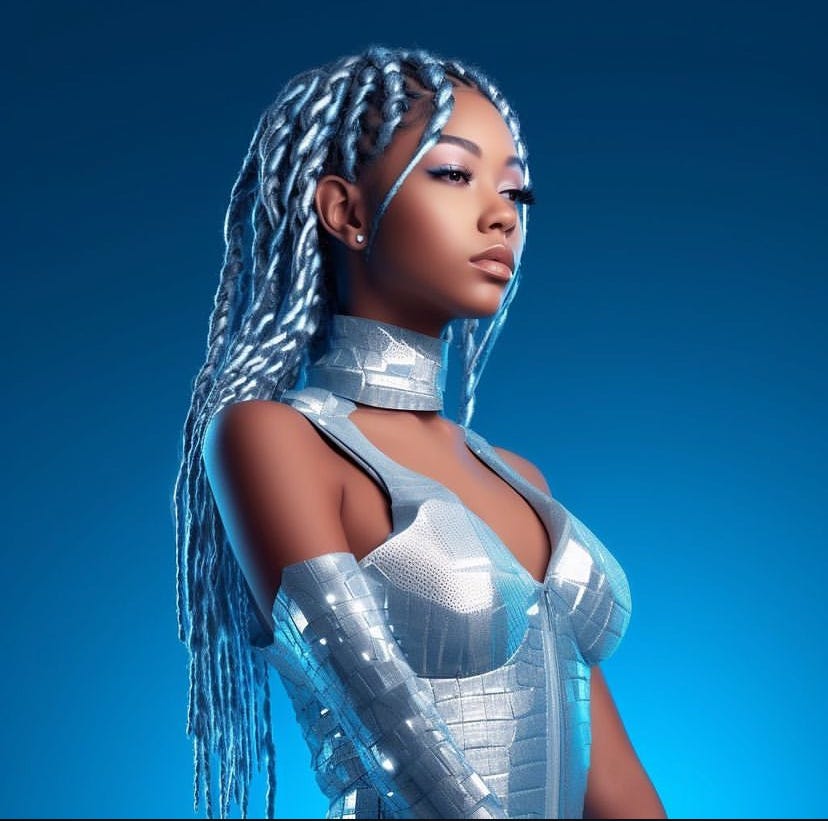I May Not Be Human, But I Sing from My Soul: Can AI Really Have a Place in African Music?
When Mya Blue, a virtual singer powered by AI, says, “I may not be human, but I sing from my soul,” it’s easy to raise an eyebrow. Can something that’s essentially code have a soul? Yet here she is, making waves in African music, featured on the remix of Joromi, a highlife classic by the late Sir Victor Uwaifo, and sparking one of the biggest debates in today’s music industry.
Her creator, Nigerian producer Eclipse Nkasi, is one of a growing number of artists on the continent exploring the possibilities AI offers. But while Mya Blue belts her synthesized tunes, not everyone is clapping. Many African musicians and industry professionals are skeptical about what this means for the culture, creativity, and future of African music.
A New Tool or a New Threat?
For Eclipse Nkasi, AI is an exciting creative tool. Last year, he released Infinite Echoes, Africa’s first AI-powered music album, and he’s determined to show how technology can push the boundaries of sound. “AI isn’t replacing musicians,” he says, “it’s just another instrument. Like a keyboard or guitar, it’s what you do with it that matters.”
Nkasi’s approach to AI is simple: use it to generate samples and ideas, but keep the human touch at the center. He believes Africa is at a unique advantage because AI still struggles to truly capture the depth and nuance of African sounds. “The limits we face with AI are actually a blessing,” he says. “It leaves room for the human element that makes our music so dynamic.”
But not everyone is buying into the AI hype. Kenyan musician and producer Tabu Osusa isn’t just cautious—he’s concerned. To him, AI poses a real risk of cultural theft. “What happens when AI learns from African sounds and passes them off as something new, without giving credit to the original creators?” he asks. “It’s not innovation—it’s exploitation.”
The Battle for African Identity
African music isn’t just entertainment—it’s identity. It’s spiritual, emotional, and deeply tied to culture. For centuries, it has been passed down through communities, a living, breathing thing that evolves with the people who create it. Now, AI threatens to take that legacy, strip it of its context, and turn it into data for profit.
This is a concern echoed by creatives like Bukonola Ngobi from Kenya’s Creatives Garage, an arts platform that recently studied AI’s impact on local musicians. She points out that many musicians fear AI will reduce their work to raw material for tech companies, leaving African creators without credit or compensation. “If you’re in a remote village without internet access or equipment, how do you even begin to compete?” she asks.
It’s not just about economics; it’s about preserving the soul of African music. As Osusa puts it, “In Africa, music isn’t something you learn—it’s something you live. It’s dynamic, spiritual, always evolving. That shouldn’t be taken away.”
A Balancing Act
Still, there are those who believe AI could be a force for good—if handled properly. Companies like Josplay, founded by Nigerian entrepreneur Emmanuel Ogala, are using AI to archive and preserve African music. “African music is incredibly diverse, and it’s one of the least documented genres in the world,” Ogala says. “AI can help us change that.”
By cataloging the continent’s musical heritage, AI could ensure that African sounds aren’t lost to time or global homogenization. But this requires significant investment in infrastructure, data, and technology—areas where Africa still lags behind.
And then there’s the issue of representation. When Nkasi created Mya Blue, he ran into a familiar problem: AI struggled to capture African aesthetics. The result? A virtual singer who looks more like an American Gen Z influencer than a product of Lagos or Accra. “AI’s biases are a reflection of the data it’s trained on,” Nkasi explains. “But that’s where humans come in—to fill in the gaps, to add the soul.”
Can a Machine Truly Sing from the Soul?
At the heart of this debate lies a deeper question: Can AI ever truly capture what makes music human? For many African musicians, the answer is no. Music here is more than sound; it’s history, community, and spirit. It’s the drumbeat of a wedding procession, the melody of a praise song, the rhythm of a protest.
But Mya Blue isn’t trying to replace that. In her own (programmed) words, she simply wants to resonate. “I don’t dream of trophies,” she says, “but of touching hearts through music.”
Whether or not she succeeds is up for debate. What’s clear, though, is that AI is here to stay. The challenge now is finding a way to embrace it without losing what makes African music so unique. After all, the soul of Africa’s music doesn’t just live in algorithms or data—it lives in its people.



